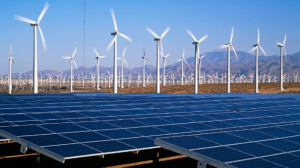Indonesian Government considers relaxing TKDN to facilitate solar power development
The Indonesian government is currently considering the relaxation of domestic content requirements (TKDN) within the 2021-2030 General Plan for Electricity Supply (RUPTL) to streamline the development of solar power plants (PLTS).
This relaxation aims to simplify solar panel imports, making them more affordable. The proposal is set to be included in the Comprehensive Investment and Policy Document (CIPP) concerning the Just Energy Transition Partnership (JETP) energy transition investment fund.
Paul Butarbutar, Deputy Head of the JETP Secretariat, confirmed the recommendation for the relaxation of these rules. He stated that the goal is to make domestic solar panel procurement more affordable while ensuring high quality.
"The relaxation is to enable imports. Currently, imports are allowed, but if the TKDN calculations involve too many imports and do not meet the TKDN requirements, fines are imposed, making the costs higher," he explained on August 23, 2023.
The JETP Secretariat has completed the CIPP document and submitted it to the government on August 16. The investment and policy plan outlined in this document will be further discussed between the government and the International Partners Group (IPG).
According to Bloomberg, one of the recommendations in the prepared CIPP document by the JETP Secretariat is the relaxation of TKDN rules specifically for solar panels. This TKDN requirement is planned to be phased out until 2025, coinciding with the initiation of solar panel production in the first Indonesian plant.
It's noteworthy that a coalition of advanced nations represented by IPG, along with international financial institutions, has pledged to invest approximately US$ 20 billion or around IDR 310 trillion to support Indonesia's energy transition. This commitment is known as the JETP project.
To execute this plan, Indonesia and IPG will formulate the CIPP document, which is currently under discussion between the government and IPG following its submission by the JETP Secretariat on August 16, 2023. Paul expressed optimism that the document will be finalized this year.
The document will encompass various agreements regarding financing plans and policy recommendations. As previously noted, only a small portion of the total investment commitment of up to US$ 20 billion will be in the form of grants.
Tag
Already have an account? Sign In
-
Start reading
Freemium
-
Monthly Subscription
30% OFF$26.03
$37.19/MonthCancel anytime
This offer is open to all new subscribers!
Subscribe now -
Yearly Subscription
33% OFF$228.13
$340.5/YearCancel anytime
This offer is open to all new subscribers!
Subscribe now





